Environmental psychology is a multidisciplinary social science that examines the relationship between human beings and our surroundings. It considers how we as people shape our natural world and built environments – and how those environments shape us in turn.
It’s one of the relatively new subfields of psychology, but it’s not a new concept. It’s common knowledge that people can find solace in nature. We may feel invigorated and excited – or even intimidated – in a busy city space. We may feel a strong sense of wellbeing and peace in our personal space, home, or community.
It was Winston Churchill who famously said “We shape our buildings; thereafter they shape us.” – and this has only proved more true as we’ve continued to build the world up around us to better suit our needs and desires.
Environmental design
But environmental psychologists don’t just focus on how our physical environment affects us. In much the same way that social psychology studies how people are influenced by other people, or ecology studies the relationships between living organisms and their environments, environmental psychology also considers how we as people affect the world.
Climate change is a compelling – even alarming – example of how we can impact our environment. Through our actions as a species, we can see direct and indirect consequences on our climate and ecosystems.
But this also means we can impact our environment in a positive way, too. Creating green spaces, sustainable communities, and supporting wildlife to thrive are all interventions that allow us to focus on sustainability and affect the world around us in a beneficial way.
This is known as environmental design. Through planning, policies, programmes, buildings and products, we can create spaces that enhance and improve our environment, whether they be natural environments, physical environments, or even social or cultural environments.
Other popular terms and research topics within the field of environmental psychology include:
- Environmental behaviour: when people make a conscious effort to minimise adverse impacts on the natural environment.
- Place attachment: the emotional bond that exists between a person and place.
- Restorative environments: environments – typically natural environments – that act almost as a form of healthcare. They rejuvenate a person and reduce their emotional stress.
- Health psychology: focuses on how biology, psychology, behaviour, and social factors influence public health and illness.
- Pro-environmental behaviour: human actions that aim to safeguard the environment.
- Organisational psychology: focuses on solutions to human problems in work and other organisational settings. The American Psychological Association (APA) notes that even ergonomically designed technology and floor plan layouts are all connected to our physical environment and influence human behaviour.
- Architectural psychology: considers the influence of the designed environment on human experience and behaviour.
Environment psychology utilises quantitative and qualitative research methods, so an environmental psychology research project could include everything from interviews and data analysis to field studies and lab experiments.
Noteworthy environmental psychologists
- Stephanie Wilkie is an associate professor in environmental psychology within the University of Sunderland’s School of Psychology. Her areas of expertise include: links between built and natural environments, health and wellbeing; urban design and health; green and blue spaces; home and housing; and the role of places in shaping identities and group memberships.
- Robert Gifford is a professor of psychology and environmental studies in Canada (within the University of Victoria’s Department of Psychology). His main research areas are in environmental psychology, social psychology, and personality psychology, and he has worked on climate change behaviour barriers. He has served as editor in chief for The Journal of Environmental Psychology and president of the International Association of Applied Psychology.
- Linda Steg is a professor of environmental psychology in the Netherlands (within the University of Groningen’s Environmental Psychology Group). Her main research interests include understanding environmental behaviour, in particular household energy use and car use, as well as understanding which individual and situational factors affect intrinsic motivation to act pro-environmentally.
What are the theories of environmental psychology?
There are a number of theories within the field of environmental psychology.
These include:
Arousal theory
Arousal is a heightening of brain activity, and arousal theory considers how we are aroused by stimulation and stress within our environments.
For example, imagine you’re on a busy roadside. It’s a hot day, you’re surrounded by crowds of people, noxious traffic fumes, honking car horns. Physiologically, your heart rate and blood pressure may increase. Behaviourally, you may start to be less considerate of the people around you.
Arousal theory examines both the positive and negative arousal experienced depending on environmental factors like these.
Environmental load theory
Environmental load theory suggests that we have a limited ability to handle environmental stimuli, and that the limit is determined by the amount of information that can be processed by our central nervous systems.
We’ve all had moments where we feel information overload. Maybe you’ve been scrolling through Twitter while watching a film, meanwhile, your housemate is having a loud conversation on the phone in the next room. Soon, you find it hard to focus on any of the things happening in your environment.
Behaviour constraint theory
Behaviour constraint theory examines the ways in which we may feel powerless when in environments that are undesirable to us. It suggests that our human behaviour in these situations is learned – that if we find we cannot control stimuli within our environment, we adopt a level of helplessness and accept what we cannot change – or perhaps we just leave the environment entirely.
Think about sharing a flat with other people. Maybe one of your flatmates is messy – they never clean the kitchen or bathroom, they leave dirty dishes and clothes all over the place, and despite speaking to them about it many times, the flat is still a mess. Behaviour constraint theory suggests you’ll either come to just accept the mess, or clean it up yourself. Or possibly find a new place to live.
Adaptation level theory
Adaptation level theory suggestions that the way we judge a stimulus is based on our past experiences and recollections of similar stimuli we’ve encountered.
We all do it – maybe you avoid cats because you were scratched by one as a child. Or maybe you enjoy going to spas because you’ve found that visiting them has helped to calm and relax you in the past.
Environment stress theory
Environment stress theory tells us that stressors in our environment – for example, pollution and climate change – affect our physiological and mental health as well as our emotions and behaviours.
For example, think about the rise in climate anxiety in the 21st century – not only is climate change negatively impacting our physical environment and health, it’s also affecting our mental health.
Ecological theory
Ecological theory says that we co-exist with our environments – and that our behaviours exist because of our environments. In fact, it suggests that there is no greater influence on behaviour than our environment.
Think about how you might behave at work, or at school, or at a friend’s house. Ecological theory suggests that it is the place, even more than your personality, that affects how you behave in each of those environments.
Apply environmental psychology in your own work
Environmental psychology is fostering a better understanding of human-environment interactions.
Whether you want to improve environmental attitudes – even promote a behaviour change to encourage more planet-friendly action – or encourage sustainable development so that we can more efficiently use natural resources, environmental psychology will help you examine how to best achieve your goals.
The 100% online MSc Psychology at the University of Sunderland is studied part-time so it’s perfect if you’re a working professional or want to switch careers – and environmental psychology is one of the key areas taught on the course.






